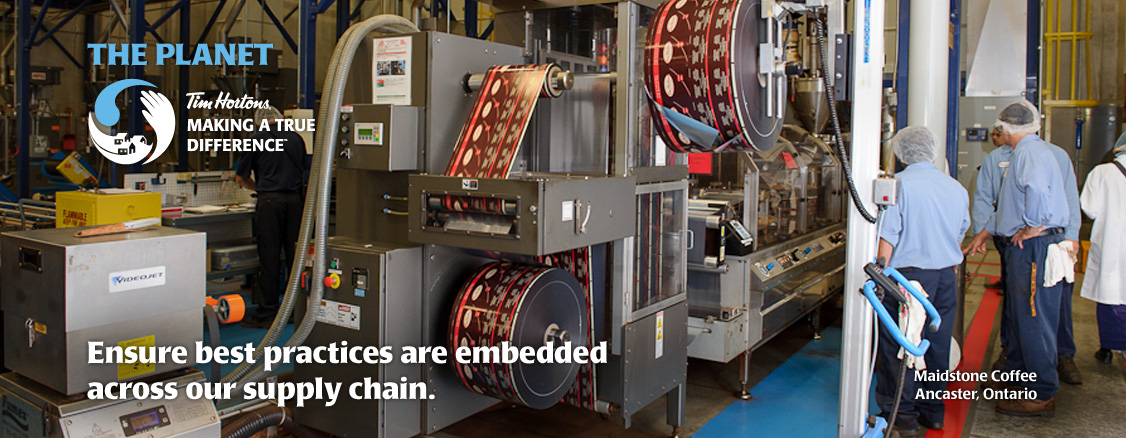Business Partner and Supplier Code of Conduct
| 2012 Goals |
Progress |
2012 Performance |
-
Using a refined, risk-based approach, we intend to implement our BPSCC and our independent verification program by the end of 2013.
|
 |
-
Over 92% of our higher risk strategic sourcing and equipment purchasing vendors and over 72% of total in-scope vendors have signed our BPSCC.
|
-
We will continue to refine and implement our BPSCC and our independent verification program by the end of 2013.
|
-
We intend to refine and implement our BPSCC verification program with all our coffee sourcing partners by the end of 2013.
|
-
We also successfully completed independent verification audits at three coffee dry mills in Colombia.
|
| 2012 Goals |
Progress |
2012 Performance |
-
We have called for the pork industry and our suppliers to eliminate gestation stalls for sows and to develop clear plans and timelines by the end of the year to
phase out these housing systems.
|
 |
-
We consulted with our suppliers, the pork industry and other stakeholders on the use of gestation stalls for breeding sows and reviewed their plans throughout 2012.
|
-
By 2022, we will source pork from suppliers who have made a transition to alternative open housing.
|
-
We affirm our call for the pork industry to eliminate gestation stall practices for sows.
|
-
Further, we will work collaboratively with the pork industry and governments to improve animal welfare and advance standardized approaches and codes resulting in
more humane and sustainable open housing systems. At the same time, we will support efforts by the industry to improve traceability systems and verification.
|
-
We have set a goal of purchasing at least 10% of our eggs, representing significantly more than 10 million eggs, from enriched hen housing systems by the end of 2013.
|
 |
-
We are on track to meet our goal of purchasing 10% of our egg products, representing significantly more than 10 million eggs,
from more humane, alternative hen housing systems by the end of 2013.
|
-
We will purchase at least 10% of our egg products, representing significantly more than 10 million eggs, from more humane, alternative hen housing systems by the end of 2013.
|
-
In 2012, we will commission scientific, fact-based animal welfare research with leading academic institutions on sustainable, humane animal housing systems.
|
 |
-
We founded the Tim Hortons Sustainable Food Management Fund at the University of Guelph.
|
-
We are committed to continuous improvement and will work closely with all our stakeholders to improve and evolve our animal welfare program.
|
-
We plan to call for a North America–wide summit of restaurant companies interested in the humane treatment of animals in the restaurant industry supply chain.
|
-
Our North America–wide restaurant industry summit focusing on academic research about animal welfare issues and best practices is being planned for the fall of 2013.
|




